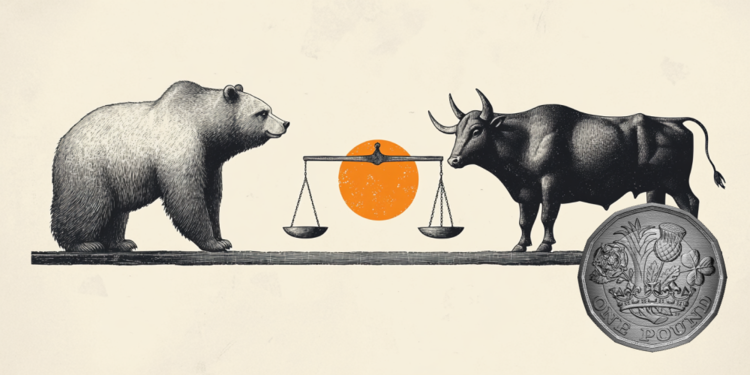The European markets closed in “red” on Friday in a week with strong volatility in the aftermath of the monetary policy decisions of the US Federal Reserve.
Markets have seen sharp changes this week as the Fed prepares to abandon its zero-interest rate policy in the coming months in a series of rate hikes to curb inflation.
The aggressive tone of Fed Chairman Jerome Powell in his statements on inflation on Wednesday even led many analysts to believe that the central bank will move even faster in tightening its policy this year, making up to six increases in US interest rates.
The extreme volatility of the week was fueled by geopolitical concerns as tensions between the West and Russia over the Ukrainian issue remain at the forefront.
Indicators
In this climate, the pan-European Stoxx 600 closed with a fall of 1.02% to 465.55 points, while earlier in the day it reached losses of up to 2%. On a weekly basis, the index lost 1.8%, recording its worst performance in more than two months. This is also the fourth consecutive week of losses.
At the same time, the other pan-European Stoxx 50 lost 1.15% to 4,136.91 points.
On the rest of the board, the German DAX fell 1.32% to 15,318.95 points, the British FTSE 100 slipped 1.17% to 7,466.07 points and the French CAC-40 lost 0.82% to 6,965.88 points.
In the periphery, the Spanish IBEX-35 closed at 8,609.80 points, recording a fall of 1.10% and the Italian FTSE MIB fell 1.18% to 26,565.41 points.
At the macro of the day, the German economy shrank more than expected in the fourth quarter of 2021, as data released today showed, as restrictions imposed to limit its omicron spread hit economic activity.
The German economy, the largest economy in the Eurozone, shrank by 0.7% on a quarterly basis, according to the country’s federal agency. Analysts’ average estimates in a Reuters poll showed a smaller contraction by 0.3%.
Alongside, the figures announced today in France showed that the country’s economy grew at a record high last year as it recovered from the coronavirus crisis. In particular, the second largest economy in the Eurozone grew by 7%, showing the highest rate since 1969, after the recession of 2020 by 8%.
Meanwhile, the economy of Spain It grew at the fastest pace in two decades last year, but fell far short of government expectations and slowed in the fourth quarter as public and private sector spending slipped amid rising inflation, according to Reuters.
GDP grew by 5% from a historic decline of 10.8% last year, according to preliminary data from the National Institute of Statistics (INE) released on Friday, which noted that although the fastest growth since 2000 has been achieved, the economy lost the 6.5% government target.
In Italy, morale between Italian businesses and consumers fell sharply in January, according to data released today, as the coronavirus crisis persists and high energy prices are plaguing companies and households. The manufacturing confidence index of the Italian statistical institute ISTAT fell to 113.9 in January from 115.0 in December. The figures were well below the average forecast of 115.3 in a Reuters survey of 12 analysts.
I am Sophia william, author of World Stock Market. I have a degree in journalism from the University of Missouri and I have worked as a reporter for several news websites. I have a passion for writing and informing people about the latest news and events happening in the world. I strive to be accurate and unbiased in my reporting, and I hope to provide readers with valuable information that they can use to make informed decisions.







